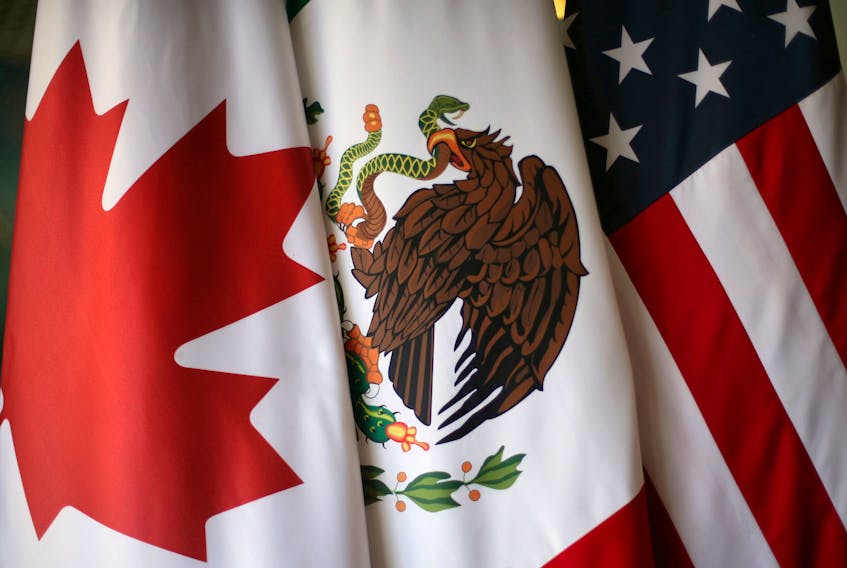RON KELLY
GUEST OPINION
On behalf of Trade Justice P.E.I., I want to challenge a claim made in an opinion piece published in The Guardian (“Chrystia Freeland is Trudeau’s minister of everything”) on Nov. 27.
In that opinion piece, Dan Leger stated there is “substantial public acceptance” in Canada of the trade deal between Canada, the United States and Mexico (CUSMA). And while we acknowledge there are some polls that might support such an assessment, other polls challenge that evaluation. Also, a new version of this tentative deal was signed recently, begging the question of how Canadians could come to any conclusion whatsoever about such a complex subject.
In addition, Canadian public opinion on the so-called “free trade” deals implemented over the past 30 years has varied considerably over time. For example, EKOS polling in the years since the first Canada-United States Trade Agreement (CUSTA) was signed in 1989 displays a roller coaster pattern, with support varying between 30 per cent and 80 per cent.
More to the point, we wonder how most Canadians could respond to a pollster in an informed fashion, given the lack of transparency in the trade negotiations. Like most trade deals based on the misnamed “free trade” model, the recent CUSMA deal (or NAFTA 2.0, as it’s sometimes called) was negotiated in secret, avoided meaningful input from Canadians both before negotiations began and after the tentative deal was reached and was never put to the people of Canada for approval. In fact, the only time that Canadians have had a chance to express a definitive opinion on “free trade” – in the 1988 election – 52.3 per cent voted for parties that opposed the U.S. trade agreement, while 43 per cent voted for parties who supported the deal.
Polling by Environics Research also suggests that the more Canadians learn about these deals, the more they oppose them. For example, when poll participants discovered that CETA – the deal between Canada and the European Union – would prevent Canadian municipalities from giving preference to Canadian companies for public infrastructure projects, 77 per cent said they opposed that provision. Similarly, 65 per cent opposed provisions that would lengthen patents on brand name prescription drugs and pass on higher drug costs to consumers and public health systems.
That provision alone could cost Canadians $1 billion annually! Another 54 per cent opposed giving non-Canadian companies investment protections or allowing them to sue Canada in private courts when they felt public policy or environmental safeguards interfered with their ability to maximize profits. This provision has already cost Canadian taxpayers hundreds of millions of dollars. Finally, 80 per cent believed Canadians should have a say on whether or not these trade deals should be accepted and that public hearings should be held before they could be ratified or passed into law by Canada’s Parliament. (Unfortunately, this poll did not ask about the erosion of Canada’s supply management system and the potentially disastrous impact that such a loss could have on Canada’s dairy farmers, including many on P.E.I.)
Because the tentative CUSMA deal is awaiting ratification by legislative bodies – including Canada’s Parliament – Canadian voters still have a chance to have their say on CUSMA by contacting their local members of Parliament and political parties. Canadians wanting to protect our democracy and send a strong message about future trade negotiations can insist that elected representatives delay ratification until the Trudeau government provides: 1. a clear explanation to Canadians on the contents of the deal; 2. an objective and independent analysis of its potential costs and benefits; and 3. a plan for a series of public “town hall” meetings in every province and region of Canada. If these multi-national deals are as important as their proponents claim, surely they deserve proper discussion and study by those who will be affected and who, in a democracy, should decide their acceptance or rejection.
Ron Kelly of Charlottetown is a member of Trade Justice P.E.I., a coalition of 20 community groups and individuals concerned about Canada’s current "free trade" agenda and who support trade that is more democratic, environmentally sustainable, respectful of the rights of Indigenous peoples and shares the benefits more fairly.









